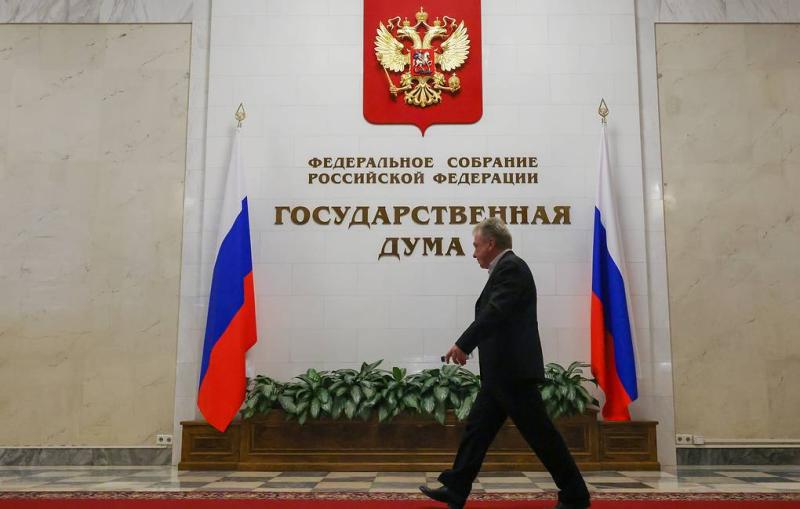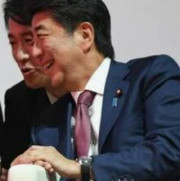
© Anton Novoderezhkin/TASS
Top stories from the Russian press on Friday, August 26th, prepared by TASS
Media: Russian lawmakers warn of looming nuclear disaster
The Council of Russia’s State Duma (the lower house of parliament) adopted a special statement, supported by the heads of all parliamentary factions, which calls on the United Nations and the International Atomic Energy Agency (IAEA) to demand the Ukrainian authorities end the shelling attacks on the Zaporozhye Nuclear Power Plant. The lawmakers emphasize that the consequences of a potential explosion threaten not only European countries but the entire world, Izvestia writes.
Political strategist Dmitry Fetisov believes that the State Duma’s statement will be heard in the West but foreign politicians aren’t ready to recognize Ukraine’s defeat just yet. "The State Duma has made an official statement defining the problem. In any case, it is an official document that even those opposing Russia will have to take note of," the expert explained.
Political scientist Alexey Makarkin, in turn, told Kommersant, that the statement would not make much difference to the UN becaused Russia’s foreign policy is the responsibility of other institutions, the president and the Foreign Ministry. According to him, the State Duma’s statement is aimed at achieving another goal by demonstrating ongoing political consensus and making it clear that all parliamentary factions support the government and nothing has changed since the start of Russia’s special military operation in Ukraine. "The West would like Russian society to change its attitude to the country’s leadership but lawmakers have shown that it’s not happening," Makarkin emphasized.
Fetisov also pointed to a recent vote in the United Nations, where only 54 out of the 193 UN member states signed a statement against Russia’s military operation in Ukraine. In the analyst’s view, it means that the trend showing countries’ attitude to the situation in Ukraine is being corrected though it’s too early to talk about radical changes.
Vedomosti: US has the same solutions for Taiwan as for Ukraine
Taiwan will increase its defense spending by a record 14% next year, President Tsai Ing-wen’s office announced. Taiwan’s defense expenditures have been rising for the sixth consecutive year but their annual growth earlier did not exceed four percent. An escalation of the conflict with China is the reason behind this year’s significant increase. The Chinese People’s Liberation Army held its largest drills ever around Taiwan following US House of Representatives Speaker Nancy Pelosi’s visit to Taipei in early August, Vedomosti notes.
It’s not the amount of money spent on defense that will have a decisive influence on the conflict but the United States’ decision to share high-tech weapons with Taiwan, Head of the Center for Asia Pacific Studies at the Russian Academy of Sciences’ Institute of World Economy and International Relations Alexander Lomanov pointed out. If Washington somehow moves to provide Taiwan with high-precision rocket systems, as well as with reconnaissance and surveillance assets, the island’s administration will have a chance to inflict considerable military damage on mainland China.
The situation in the Taiwan Strait is so tough that the Taiwanese authorities’ decision to increase defense spending simply cannot complicate it any further, Director of the Center for Comprehensive European and International Studies at the Higher School of Economics Vasily Kashin noted. Besides, the money from the expanded military budget will be spent on US weapons purchases, the expert added.
According to Kashin, Beijing will keep an eye on US weapons supplies to Taiwan, taking note of major contracts. However, China’s disagreement with those supplies will spoil Beijing’s relations with Washington rather than with Taipei, the analyst concluded.
Izvestia: US unlikely to drive Russia, China out of Central Asia
A US congressional delegation has arrived in Uzbekistan’s capital. On the one hand, the visit is aimed at keeping Tashkent in the US zone of influence yet on the other, Washington has not offered anything in return. The question is whether the United States will be able to drive Russia and China out of the Central Asian region, Izvestia notes.
"Uzbekistan is pursuing a multi-vector foreign policy and keeps highlighting its readiness to build friendly relations with China, Russia and the United States, in addition to boosting cooperation with European countries," Head of the Center for Post-Soviet Studies at the Russian Academy of Sciences’ Institute of World Economy and International Relations Eduard Solovyov noted. "The US pays certain but not increased attention to the region in the general and Uzbekistan in particular as the largest country in the region. It’s not ready to invest in Uzbekistan so it’s unclear what Washington has to offer at the moment. After its chaotic pullout from Afghanistan, the US can hardly be viewed as a reliable security guarantor, and given that Washington’s financial resources aren’t unlimited, it’s not clear what alternative to Tashkent’s cooperation with Moscow and Beijing it can offer," the expert added.
"The country [Uzbekistan] has a well-defined foreign policy strategy with a focus on Central Asian nations and Afghanistan that Tashkent believes to be part of the region, so it is about the countries bordering Uzbekistan. Next come its second-tier neighbors, which include Russia, China, Middle East and South Asia countries," expert in Central Asian security Rustam Burnashev explained.
"Global players such as the United States and the European Union are also important for Uzbekistan but they are in fact a third-level priority. Besides, Washington’s interest in Tashkent is also limited. Afghanistan was cited as the reason in the past and now it’s a desire to limit the influence of Russia and China, so these are political contacts and not economic and technological ones," the analyst said.
Nezavisimaya Gazeta: Ukrainian conflict boosts Russian, US commodity revenues
The Ukrainian conflict and Western sanctions were expected to deal the most significant blow to the Russian economy. However, it is the Kiev-controlled part of Ukraine that is suffering the most. Europe is also facing heavy losses with people having to give up their usual consumption standards. Meanwhile, US natural gas exporters have clearly benefited from the crisis, Nezavisimaya Gazeta writes.
A deepening energy crisis is the obvious consequence of the Ukrainian conflict. Europe’s gas prices keep rising. Spot prices passed $3,300 per 1,000 cubic meters on Thursday. At the same time, Russia continues to increase energy exports. According to the Western media, from March to July, China imported $35 bln worth of Russian energy resources compared to $20 bln the year before. As for US energy, it is actively taking over the European market.
"It is arms suppliers that primarily cash in on any armed confrontation. Apart from them, oil producers also earn a lot. Saudi Aramco’s profit has almost doubled, while the revenues of US oil majors have tripled or even quadrupled. This is logical because oil prices have remained above $95 per barrel of Brent crude for six months. In such a situation, Gazprom is in positive territory even with reduced supplies amid sky-high gas prices in Europe," Strategic Research Specialist at Total Research Nikolay Vavilov pointed out.
As for Russia, the country has so far seen no problems from sanctions in terms of budget revenues. "However, there are too many options that can have a medium-term impact, from software to equipment spare parts for oil companies, which used to come from Europe," the expert added.
Kommersant: Europe suspending fertilizer production
Rising gas prices have caused a series of suspensions at European fertilizer producing facilities. Over a period of just a few days, major companies in Norway, Germany, Poland, Lithuania, France, the United Kingdom and Hungary have announced that they were either reducing output or closing their plants. According to analyst estimates, the market will lose over ten percent of ammonia production capacities, which will support the already high global fertilizer prices, Kommersant notes.
Experts interviewed by the paper expect the trend to persist. A sharp drop in fertilizer use may create a food crisis in the European Union so Brussels will soon approve a directive allowing importers to safely purchase Russian fertilizers. Logistics currently is the biggest issue related to Russian exports.
Vygon Consulting’s Dmitry Akishin points out that the share of gas in the cost structure of ammonia may reach 80-90%. The expert estimates the total capacity of the suspended manufacturing facilities at several percent of the global ammonia use in the production of fertilizers. Facilities producing up to 15 mln tonnes of ammonia in total have already been suspended in Europe or are under the risk of being shut down, the analyst noted.
As for countries with cheap gas, including Russia, ammonia production facilities usually operate at 80-90% of their capacity because of high competitiveness. This is why it’s quite difficult to compensate for volume losses, Akishin said, pointing to good prospects for new manufacturing sites being constructed in Russia.
Nina Adamova from Gazprombank’s Center for Economic Forecasting believes that no one will be able to offset European supplies to the global market in the coming six months.









